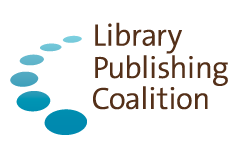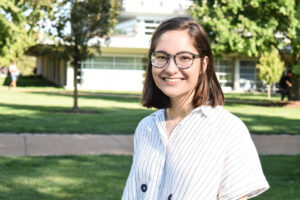January 6, 2026
By Jonathan Grunert
by Jonathan Grunert, University at Buffalo
 For the past few years, I’ve been working on developing Library Publishing: How to Launch, Enhance, and Sustain Your Program. It’s been a great experience, and its creation is in no small part a credit to the Library Publishing Coalition. At the 2022 Library Publishing Forum in Pittsburgh, several folks talked about the need for a book or other project that could lay out parts of the process for developing a library publishing program. Over the course of a few days, I chatted with others who identified some specific needs— among them, a glossary of terms that could be useful to administrators new to the world of library publishing. My edited volume stemmed from these conversations, and I was able to work with ACRL to make it available as an open access resource for the community.
For the past few years, I’ve been working on developing Library Publishing: How to Launch, Enhance, and Sustain Your Program. It’s been a great experience, and its creation is in no small part a credit to the Library Publishing Coalition. At the 2022 Library Publishing Forum in Pittsburgh, several folks talked about the need for a book or other project that could lay out parts of the process for developing a library publishing program. Over the course of a few days, I chatted with others who identified some specific needs— among them, a glossary of terms that could be useful to administrators new to the world of library publishing. My edited volume stemmed from these conversations, and I was able to work with ACRL to make it available as an open access resource for the community.
The book is a collection of essays from many library publishers in the United States. Their experiences as librarians, administrators, and teaching faculty formed a narrative that touches on important aspects of library publishing, such as valuing labor, providing access, collaborating across departments and fields, and promoting student success. Some of these issues are more frequently discussed in academic institutions, while others, such as labor in libraries, are only whispered while making a coffee run.
Many of the authors who contributed to Library Publishing come from LPC member institutions: Virginia Tech, George Mason University, Adelphi University, University of Delaware, Temple University, SUNY Geneseo, Columbia University, University of Maryland, University of Georgia, Atlanta University Center, Indiana University, University of Minnesota, and the University at Buffalo. That’s more than half of this book’s authors, and certainly, other LPC members institutions have librarians who could contribute to another volume.
As mentioned in the book’s introduction, for two years I was concurrently editing this volume while launching a new library publishing program at the University at Buffalo. (Side note: UB ScholarWorks is entering its second year of active publications, with four issues published in 2025!) I learned a lot while reading the contributed chapters, especially in the diversity of content produced in library publishers and the variety of practices employed by them. Valuing the non-prescriptive narratives became forefront in my editing process, as the success of a library publishing program depends a lot on institutional culture, goals of the library, and support and direction from library leadership. Working with these authors also affirmed that we at the University at Buffalo were doing things right, a helpful encouragement when launching the program seemed far off.
From the process of editing, I learned that editing can be fun! Full disclosure— this was my first editorship, and I hope the process was as smooth for authors as it was for me. I also recognized through this process that an edited volume is only as good as the authors and their lines of communication. I’ve heard stories of editors who have to track down their authors for months, and I am very glad to report that no authors let communication run dry.
But there remains more to do to complete this volume. Library Publishing is not— and cannot be— the last word on the topic, especially as new platforms develop, new journals launch, and new technologies are invented. But beyond expanding into *new* territories, library publishers can amplify conversations around labor in library publishing. This topic was central to much of the 2022 Library Publishing Forum, and it will be a perennial subject of conversation as librarians’ curiosity takes them into new areas outside their regular responsibilities. Additionally, the glossary of this book, though an important contribution, remains unfinished. Expanding the glossary to identify and correctly define and modify terms will help new library publishers and administrators develop a common vocabulary, which will help expand their programs. Finally, library publishers can take the contents of these twelve chapters and imagine their own programs. Changing practices to fit a local need helps to improve both the library and the publishing program, and it remains a best practice to learn from other librarians.





 For the past few years, I’ve been working on developing
For the past few years, I’ve been working on developing  “VIVA is excited to offer an affordable and inclusive avenue for all our members to join LPC’s vibrant, supportive community. The new partnership model developed with LPC makes broad participation possible—from small community colleges to large doctoral institutions, and from those
“VIVA is excited to offer an affordable and inclusive avenue for all our members to join LPC’s vibrant, supportive community. The new partnership model developed with LPC makes broad participation possible—from small community colleges to large doctoral institutions, and from those 
 “Winning the LPC Exemplary Service award is such an honor! When I began my career in library publishing, I found myself needing to preserve hundreds of digital publications our library had published over the past 20 years. My experience chairing the digital preservation working group with Wendy provided both much needed technical guidance and community in navigating the daunting task of preserving born digital library publications! I’m thrilled our quick guides are now available to all library publishers.”
“Winning the LPC Exemplary Service award is such an honor! When I began my career in library publishing, I found myself needing to preserve hundreds of digital publications our library had published over the past 20 years. My experience chairing the digital preservation working group with Wendy provided both much needed technical guidance and community in navigating the daunting task of preserving born digital library publications! I’m thrilled our quick guides are now available to all library publishers.”  “I am truly honored and humbled to have received this recognition. I am proud we have been able to contribute to LPC through the Preservation Working Group. LPC is one of my favorite library organizations, full of brilliant, kind, and helpful people doing amazing things. To have our efforts on the committee recognized is a bit flabbergasting given what so many other people do for LPC. Knowing what an outstanding group of people are involved in LPC makes it mean so much to be recognized for our efforts. This is one of the nicest things that has ever happened to me in my career. Thank you.”
“I am truly honored and humbled to have received this recognition. I am proud we have been able to contribute to LPC through the Preservation Working Group. LPC is one of my favorite library organizations, full of brilliant, kind, and helpful people doing amazing things. To have our efforts on the committee recognized is a bit flabbergasting given what so many other people do for LPC. Knowing what an outstanding group of people are involved in LPC makes it mean so much to be recognized for our efforts. This is one of the nicest things that has ever happened to me in my career. Thank you.”